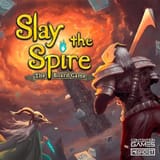>>712830743
Surely the concept of "being good at something" isn't alien to you? For basically the same reason competitive billiards, competitive knitting, or competitive StarCraft are a thing: there's a lot of room for getting good at the specific task of billiards/knitting/StarCraft/Chess specifically (without being good at any of the others, or proving theorems, or composing fugues, or winning political arguments, or whatever). Smart people are advantaged in each, both in terms of being able to develop more sophisticated mental models like how balls will hit each other, learning the models and patterns quicker and retaining more of them in their memory, and thinking faster (especially in terms of being able to think quickly to move quickly, as comes in handy in knitting and StarCraft). Plus, intelligent people also tend to be better at self-governance, like actually putting in the hours of practice, rather than letting their mind wander or doing something else entirely.
There's this thing called g-loading, which basically means how much the so-called g-factor (that's what you get when you look at how good people are in lots of cognitive tasks, do some statistics, and notice there's an underlying correlating factor between performance in all of them: in everyday language we call that "intelligence"). Chess is g-loaded, but not to any particular degree over most other vaguely cognitive tasks. The second best human in history (and the best player who has taken such tests publicly), Garry Kasparov, was measured 123-135 in the several professional IQ tests he took (although was noted for far more exceptional performance in pattern-recognition and memory), which is high, but not exceptionally high - being the best in your class, basically. I suspect billiards/knitting/StarCraft champions would fairly uniformly have 120+ IQs, too, because being at the absolute top without is unlikely. Of course, literal idiots can play Chess according to rules.









